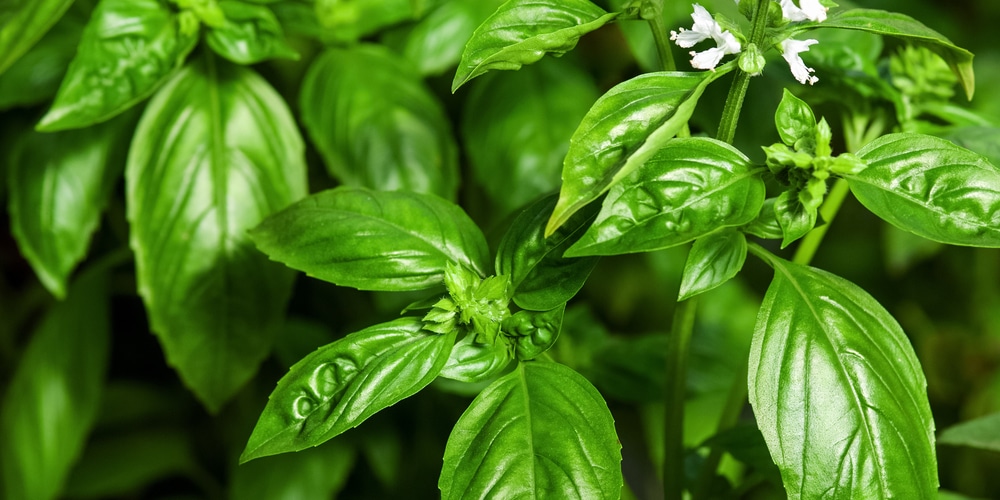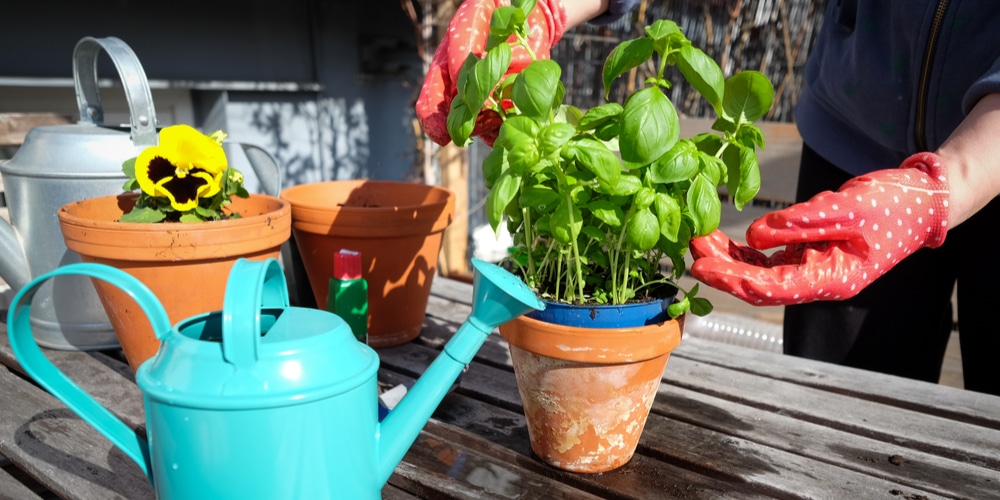Basil are must-haves in any herb garden, but like its culinary counterparts it’s susceptible to bugs and pests that eat away at the stem and foliage. While growing basil, you may ask, ‘how to keep bugs off my Basil plant?’ Let’s find out!
How To Keep Bugs Off My Basil Plant
You can try these 5 simple methods to keep your herb happy and pest-free.
A Spritz of Water
Perhaps the easiest way to take care of bugs in your basil plant is a good old spray of water from your hose.
Common pests such as spider mites, aphids and whiteflies can be easily dislodged with regular spraying, and this makes it harder for them to come back. What’s great about this bug-off solution is that it won’t likely harm your herbs as long as you do it at the right time.
So, when is the best time to spritz away bugs off your basil? You can do it in the afternoon or early evening when the sun is going down and the temperature is cooler. This allows you to give your basil a bath without inviting fungal disease or leaf scorching. Don’t forget to hose or spray the underside of the leaves to remove mites and aphids hiding there.
Homemade Anti-Bug Spray
You can make your own bug spray that’s suitable for herbs using common household ingredients.
All you need is clean tap water and non-detergent liquid soap, as well as a spray container to create your own bug solution. You’ll want to measure out around two to three teaspoons of liquid soap per gallon of water (and filtered or mineral if tap water is hard) and put it in a spray bottle for application.
It’s similar to a spritz of water in that you should apply it late afternoons or early morning when the sun isn’t too hot yet. It’s recommended that you thoroughly soak the leaves and the stems to dislodge the pests or break their protective coating and leave them vulnerable against the elements. Also, you should give both the top and bottom parts of the leaves a good soak.
Alternatively, you can buy insecticidal soap in either concentrate or spray bottles if you don’t have time to mix one. However, you should follow instructions as specified in the bottle or packet to minimize doing damage or harm to your basil plants.
Neem Solution

Neem is considered a natural insecticide and offers a bug-free herb garden for those who need it. Neem spray can kill and prevent aphids, thrips and whiteflies, among others.
Most neem garden products come in the form of concentrates, which must be diluted to form a liquid solution. For the best results you should follow directions as stated in labels. More often than not you will need to mix around one to two tablespoons of neem concentrate in a gallon of clean water.
You should spray neem solution during early evenings as it’s more effective the longer it stays on the basil leaves. Thoroughly soak your basil plant’s leaves on the top and bottom portion and let it sit and dry out on its own.
Diatomaceous Earth
Diatomaceous earth is a good remedy for pests that go around the soil, including slugs and worms. It usually comes in powder form and shouldn’t be mixed with water- instead, sprinkle a generous amount of DE around your herb garden and over the basil plant itself. Afterwards, lightly shake the basil stem and leaves to dislodge excess powder from the foliage.
This anti-bug solution is environment-friendly as it comes from nature. You can use food-grade diatomaceous earth if you have pets or children for peace of mind. As far as application is concerned, you can sprinkle the powder after every rain shower or around once a month to keep the soil and herbs healthy.
Coffee Grounds
As a sort of last resort, you can use coffee grounds as an insect repellent and to keep away larger creatures, such as cats or birds.
Burnt coffee grounds are the most effective according to the EPA, but the used variety works as well. You can sprinkle it on the immediate soil and get a nice benefit of giving your medium some nice acidity as well. The nutrients in coffee grounds can help enrich the soil too.
Related Article: How Many Basil Seedlings Per Pot?
